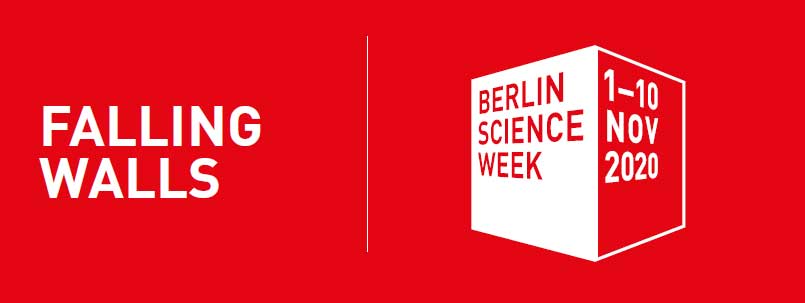The idea of open access science journals is a novel initiative that helps bring forth reliable information about genuine scientific contributions to the science communities worldwide. Most of these open access science journals were founded with a mission to develop reliable platforms and to provide unrestricted access to scientific literature for rapid dissemination of recent breakthroughs in various disciplines of science. Another benefit of such open access science journals is that people can have access to the latest scientific papers at no cost and avail the facility to enhance their scientific understanding in the relevant topics.
There is always a worldwide need to have access to reliable sources for scientific information, resources, and guidance. Until recently, the traditional publishing sector was the only channel available to meet these needs. The open access publishing model is a new avenue to meet such requirments that is accessible to a much wider audience.
The stunning advances in various fields of science and technology have had a profound impact on humankind in every sphere of life. These advances have created a sharp schism between the technologically developed countries and the relatively backward countries. Being a national of a developing country like Pakistan, my primary focus as a science journalist and a science communicator is to make science accessible to everybody in a simple to understand way that laypeople can relate to.
Pakistan doesn’t have an open access publishing model to speak of. There are only a handful of science journals and magazines that are providing reliable scientific information to the masses. This is why my primary focus during various events of the Berlin Science Week 2020 (held virtually from 1st to 10th November 2020) was on discussion sessions that highlighted open access publications and transparency in science.

Berlin Science Week is the most interesting event of the year for science enthusiasts all over the world. This year around 200 events were held virtually, including science breakthroughs of the year 2020, panel discussions, and major research work in healthcare and Coronavirus vaccine development. While scrolling through the events list, a panel discussion entitled, “Why no one is reading your open access publication and how to fix it” caught my attention. The four panelists were Russel Alt Haaker, Stephanie Dawson, Czifra, and Agatha Mokre.
Russel, who is working for an open-access platform in Berlin, said that it is difficult for young researchers to publish their work in established journals. On the other hand, young researchers will find it easier to publish in open-access journals because the researchers are familiar with digital platforms. However, publishing in open access platforms doesn’t give young researchers the same credibility that publishing in established journals could garner. One possible solution to this problem is for young researchers to collaborate with more established researchers who are willing to put their names on open access publications and put the weight of their fame behind younger researchers. This would be a win-win for both.
We are moving into the digital age of open access publication. Here, the key component is metadata that provides at least the basic information that is needed for people who are looking for your book, said Agatha Mokre. A major factor that influences how widely your book is read is the title of your book and publishers’ information about your book. I think that we do not have robust standards of metadata, especially for open access books, and having informative metadata is probably the most crucial way of making sure that someone will take an interest in your book. She added.
Meanwhile, Russel added: We aim to make dissertations and research of the young academics more visible (regardless of whether they decide to stay in academia or not). Different global scholarly information management systems are in place for them, starting with the most obvious, Google scholar. At the same time, social platforms are usually the places where quality issues around metadata become visible.
During this panel discussion, the attendees were provided a questionnaire to fill so organizers could learn more about them and their personal interests. The poll results indicated that around 72% of audiences were researchers, a small number were academics or publishers, and the rest were students who were essentially researchers or academics at the beginning of their careers. The poll also indicated that 62 percent of attendees have published articles or reviews in open access science journals. With these figures, the panelists concluded that a majority of researchers encounter hurdles in publishing their research work in open access journals. The need of the hour is to develop a worldwide catalog system for open access publication. Today there is a hodgepodge of resources that serve this purpose: libraries, the internet, traditional science journals, etc. However, there is no central repository of information that everyone could access.
During the pandemic, the public’s interest has shifted towards healthcare, research work on vaccine development, and other precautionary measures for keeping one safe from the deadly virus. In such a situation, it is even more important to establish open access publications and other reliable information resources that public can trust.
It is worth mentioning that the shift to open access publishing started idealistically, with enthusiasm and pressure from the grassroots. Instead of putting research work into science journals that are expensive and have a high bar for getting accepted, one would make articles available for free. In the early phases of a career as a researcher, having a publication in a high-profile science journal can significantly increase one’s chances of landing a job or getting research grants. Currently, this is a big hindrance in open access publishing. No matter how many obstacles there are in getting a paper accepted in a high impact journal, getting a paper published in the prestigious science journals like Nature, Scientific American, and Science, is so compelling for career advancement that open access journals don’t stand a chance.
The barriers to open access could only be removed with strong leadership. An example is Norway, where universities get part of their public funding as a function of the number of scientific publications they produce. If the government modifies the system such that open access publications would get valued more, it would not take long for change to happen.
Read, Also: National Science and innovation Fair

Saadeqa Khan is the founder, CEO, & Editor-in-Chief of Scientia Pakistan. She’s a member of the Oxford Climate Journalism Network (Second Cohort) and NASW. Saadeqa is a fellow of NPF Washington, The Falling Walls Foundation, and the Science Journalism Forum. Saadeqa has won several international journalism grants and awards for her reports.

